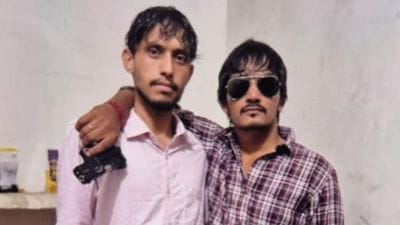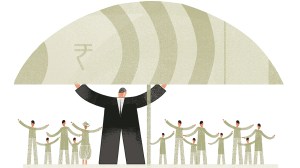In line with CMP, healthcare gets big push from Chidambaram
Health and education, according to the Finance Minister P Chidambaram, enjoy primacy in the Budget this year. The health allocation was incr...

Health and education, according to the Finance Minister P Chidambaram, enjoy primacy in the Budget this year. The health allocation was increased by 22 per cent this year. For 2006-07 it is Rs 12,546 crore compared to Rs 11,000 crore last year.
The increase seems a step towards increasing the health Budget from 0.9 to 2 per cent in five years, as promised by the UPA government in its Common Minimum Programme.
The national rural health mission launched on April 12, 2005, one of the flagship programmes of the present government, got Rs 8,207 crore for next year as compared to present allocation of Rs 6,553 crore.
‘‘I am confident that in 2006-07 more than 200,000 Associated Social Health Activists (ASHA) will be fully functional and over 1,000 block level community health centres will provide round the clock service,’’ said the Finance Minister in his speech.
While allocating more money, the minister also set December 2007 as deadline for polio eradication.
Beginning this year, the Centre is assisting the states to the extent of 50 per cent of the actual expenditure incurred for supplementary nutrition or 50 per cent the cost norms.
There is more good news on the health front with exemption and decrease in taxes of essential drugs. Customs duty on 14 anti-cancer and 10 specified anti-aids drugs has been reduced to 5 per cent. There’ll be no excise duty on the drugs.
Tax on cigarettes goes up
NEW DELHI: As promised in the Tobacco Control Programme of the country, the tax on cigarettes has increased and a unified exercise duty of 66 per cent is levied on pan masala. Beedis which constitute about 80 per cent consumption of tobacco in the country has been left untouched. The move, however, has not made anti-tobacco activists happy. “We welcome the increase in the prices of cigarettes as a disincentive to smoking, worldwide recommendations say all types of tobacco should be taxed,” said Dr K Srinath Reddy, head of the department of cardiology at AIIMS.
Photos





- 01
- 02
- 03
- 04
- 05


























